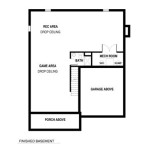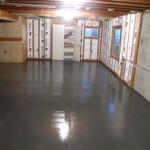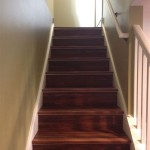Best Drop Ceiling Tiles for Basement: Essential Considerations for Your Underground Sanctuary
Transforming your basement into a functional and visually appealing living space requires careful planning and the right materials. Drop ceiling tiles, also known as suspended ceiling tiles, offer an excellent solution for concealing unsightly pipes, wires, and other utilities while enhancing the aesthetics of your basement ceiling. However, choosing the best drop ceiling tiles for your basement is crucial to ensure longevity, durability, and a finished look that complements your space.
Material Considerations:
Drop ceiling tiles are typically made from various materials, each with its own unique advantages and drawbacks. Some of the most common materials include:
- Mineral Fiber: Mineral fiber tiles are fire-resistant, moisture-resistant, and affordable. They are a popular choice for basements due to their ability to withstand humidity and occasional water exposure.
- Metal: Metal tiles are durable, moisture-resistant, and reflect light, making them suitable for basements with limited natural light. However, they are more expensive than other options.
- PVC: PVC tiles are lightweight, moisture-resistant, and easy to clean. They are a budget-friendly option but may not be as durable as other materials.
Size and Configuration:
Drop ceiling tiles come in various sizes, most commonly 2'x2' and 2'x4'. The size you choose will depend on the dimensions of your basement and the desired grid layout. Tiles can be configured in different patterns to create visual interest or accommodate lighting fixtures.
Acoustic Performance:
If noise reduction is a priority for your basement, consider tiles with good acoustic properties. Sound-absorbing tiles can minimize noise from upstairs or adjacent rooms, creating a more peaceful and comfortable environment.
Light Reflectance:
The light reflectance of drop ceiling tiles can significantly impact the brightness of your basement. Tiles with a high light reflectance value will reflect more light, making the space feel brighter and more inviting. A low light reflectance value can create a more subdued atmosphere.
Moisture Resistance:
Basements are prone to moisture and humidity, so it is essential to choose drop ceiling tiles that are moisture-resistant. Mineral fiber and metal tiles are excellent choices for this purpose, as they are designed to withstand exposure to moisture without warping or sagging.
Installation Considerations:
Installing drop ceiling tiles requires a suspension system consisting of main tees and cross tees. These components create a grid that supports the tiles and conceals the underlying ceiling. It is important to ensure that the suspension system is properly installed to prevent the tiles from sagging or falling.
Cost:
The cost of drop ceiling tiles varies depending on the material, size, and acoustic properties. Mineral fiber tiles are generally the most affordable option, while metal tiles are more expensive. Consider your budget and the specific needs of your basement when selecting tiles.
Conclusion:
Choosing the best drop ceiling tiles for your basement involves considering factors such as material, size, acoustic performance, light reflectance, moisture resistance, installation considerations, and cost. By carefully evaluating these aspects, you can select tiles that meet the functional and aesthetic requirements of your basement, transforming it into a comfortable, stylish, and inviting space.

Basement Drop Ceiling Tiles Total Finishing

Basement Ceiling Ideas Installation

Diy Coffered Ceilings With Moveable Panels Renovation Semi Pros

Basement Ceiling Tiles Ceilings Armstrong Residential

10 Drop Ceiling Ideas To Dress Up Any Room Bob Vila

Basement Ceiling Tiles Springfield St Louis Charles

Ceilings 101 Drop Ceiling Vs Drywall Elegant Walls

Diy Coffered Ceilings With Moveable Panels Renovation Semi Pros

Stunning Suspended Ceiling You Can Diy Home With Krissy

Basement Ceiling Ideas Ceilings Armstrong Residential
See Also








